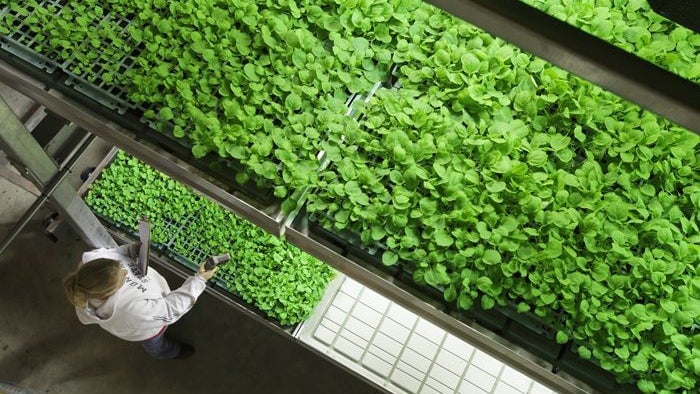This company is putting its entire crop of tobacco plants toward curing Ebola
In early August, when two American patients recovered from the Ebola virus that they had contracted in Liberia, the US medical community largely attributed their survival to an experimental drug known as ZMapp. The drug, developed by San Diego-based biotech firm Mapp Biopharmaceutical, had never been been tried before on human beings, and still has not yet been approved by the US Food and Drug Administration.


In early August, when two American patients recovered from the Ebola virus that they had contracted in Liberia, the US medical community largely attributed their survival to an experimental drug known as ZMapp. The drug, developed by San Diego-based biotech firm Mapp Biopharmaceutical, had never been been tried before on human beings, and still has not yet been approved by the US Food and Drug Administration.
But that has not stopped one of Mapp’s contract manufacturing firms, Kentucky BioProcessing, from dedicating its entire tobacco crop to manufacturing ZMapp. The company specializes in plant-based protein production, which in this case means highjacking the tobacco plant’s natural biochemical processes to churn out the three antibodies that are designed to bind to the Ebola virus.
The goal is to produce enough of the compound to expedite the FDA’s approval process, said David Howard, a spokesman for tobacco giant Reynolds American Inc, which owns the Kentucky BioProcessing plant where the ZMapp compounds are being manufactured.
It’s a time-consuming process: First, the tobacco plant is infected with the three monoclonal antibodies produced by Mapp. The tobacco will then start producing proteins in response to the antibodies. ”We’re able to target the proteins, extract them, purify them and create these ZMapp compounds in about two months time, usually,” Howard tells Quartz.
Every employee at Kentucky BioProcessing, Howard says, feels the plant has a unique role to play in the global fight against Ebola. The increased production in the coming months may spur the FDA to act, but there is no guarantee; the regulator is notoriously cautious when it comes to approving new and largely untested drugs.
Ebola, though, represents a unique global pubic health challenge. Dr. Peter Hornby, professor of infectious diseases and global health at the University of Oxford, said last month that governments around the world need to fast-track clinical trials on experimental Ebola drugs to ”provide rapid and reliable answers in perhaps the most challenging outbreak we have ever encountered.”